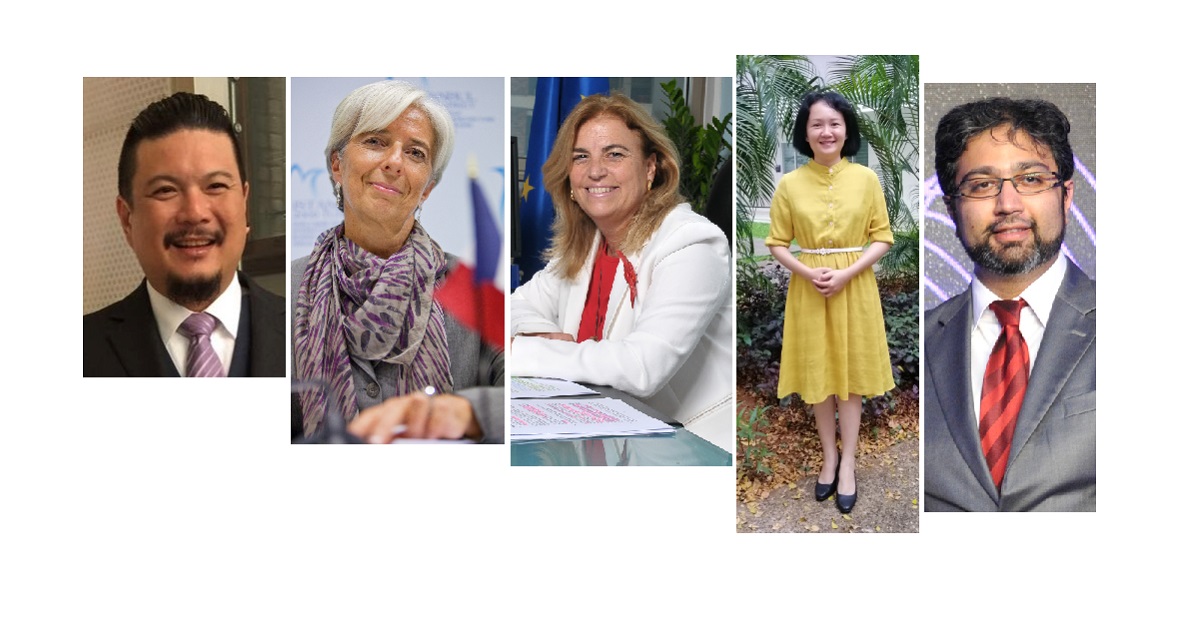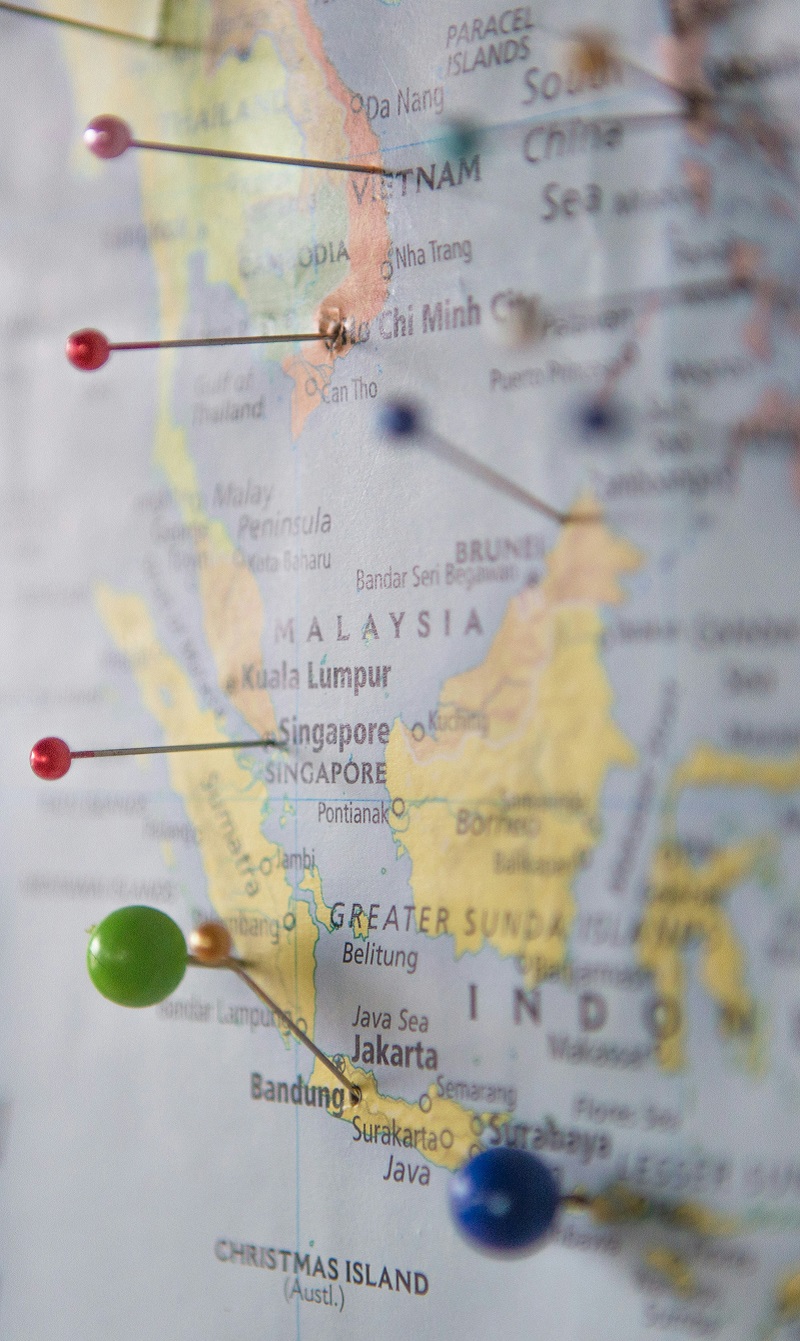Focusing On: How to be Resilient in Today’s Economic Climate
Here, Su Aziz compiles responses by individuals from varied backgrounds, which unwittingly divulge strategies to develop resilience towards an unstable economic period. This was an article featured in In Focus magazine issue 5.
Christine Lagarde
Former Managing Director, IMF
June 2019, during a Special Engagement Session at the University of Malaya in Kuala Lumpur, part of the speech contained: ‘Since 2000, Malaysia’s real annual GDP growth averaged 5.5 per cent. Real income per capita grew by nearly 6 per cent per year. Average life expectancy has increased by almost three years. How did you get here? In part by pursuing economic diversification, strengthening the financial sector and focusing on sustainable growth. The result has been a more inclusive, resilient Malaysia that was able to withstand the impact when the global financial crisis struck in 2008.
‘Malaysia capitalised on its geography to improve trading relationships and foster integration. It has established itself as a global manufacturing powerhouse…But Malaysia doesn’t just produce, it also invents. Malaysia has become a hub of innovation…Over the last five years, startups ranging from digital media companies to web-based financial services to online professional recruitment agencies have sprung up across the country. And we know an entrepreneurial economy like this one can only thrive with an educated workforce.
‘A compulsory education requirement could provide a much-needed boost to student enrolment rates and help hundreds of thousands get on the right track early…Investments in high-quality education can reduce skill mismatches, raise wages and help all Malaysians harness the potential of new technologies. And as the child of teachers I also have to say this — let us not forget the educators…One issue [Teach for Malaysia is] focused on is improving the quality of teaching – including incorporating more math and science into the curricula at all levels.’
H.E. Maria Castillo Fernandez
EU ambassador to Malaysia
An economy that can embrace and incorporate the challenges of climate change into its growth and development, that upholds the principles of governance, rule of law and prioritises the welfare of its citizens, is one that in the long term, will serve its citizens best.
Andrew Ching
CEO, E-Plus Ltd
Change happens whether we like it or not and we can only be prepared for it. With the recent unfolding of events, the business we are in – events and sports management – is one of the worst to be hit. Clients won’t spend unnecessarily by engaging external services and consumers will pick and choose the events that they plan to participate in.
To get through these challenging times, firstly, we have to employ a defensive strategy whereby we ascertain how we can retain our current customers by providing value-added services and thorough knowledge of our customers is essential for this strategy to work.
Secondly, we have to look at a diversification strategy where we’ve to seek opportunities in regional markets rather than just local. Providing current and existing services to other nearby relevant markets would be able to generate additional revenue from other potential customers in the region.
Finally, a defining strategy is the most relevant in these times as we must continue to do business, sustain the company and give existing as well as potential customers the belief that we’re able to provide the best services, and manage the most attractive events in the market regardless of the economic situation.
Though the economic climate may not be favourable at the moment, but we believe that by adhering as close as possible to our strategies, we won’t only survive but we’ll be able to pursue new opportunities.
Mobasher Zein Kazmi
Director, Zein Consulting
Resilience in today’s climate, especially in the context of emerging and frontier economies, requires a combination of institution-building, technological innovation, market openness and sustainability. No country will be able to progress socio-economically if state institutions lack capacity, the legal and judicial system is found wanting and government machinery is weak and ineffectual. The various branches of government must deliver on good governance coupled with sound law and order, so as to provide the basis for sustained growth and macro-economic stability.
The next aspect of resiliency is focussed on technological innovation where economic participants are encouraged and incentivised to invest in research and development of new solutions that address common problems. Technological innovation can be either organic and homegrown or externally driven through partnerships, which facilitate technology transfer and upskilling of human resources.
The third critical factor is market openness – this dimension increasingly gains importance in light of the ongoing trade wars between competing economic giants. Long-term economic resilience mandates that markets remain open for international trade, and free flow of capital and labour is to a large extent made possible through the formation, as well as active participation, in trade blocs or bilateral free trade agreements. Frontier economies must focus on specialisation to capture niche markets while diversifying their export product and service portfolios as their economies mature.
Finally, sustainability within the context of natural resources and the environment is paramount to offset wastage and depletion. Regulation, governance and awareness among key stakeholders are key planks of an effective sustainability regime.
Dr Ting Siew King
Senior Lecturer of Economics, Universiti Teknologi MARA Sarawak
In Malaysia, according to Central Bank of Malaysia’s report, the household debt to GDP was 83 per cent or RM1.18 trillion in 2018, with main expenses in residential property loan (53.2 per cent) and the remaining 46.8 per cent in personal consumption including motor vehicles, credit card and personal finance. The high debt ratio has caused concern from various sectors in the economy.
Economy is a zero-sum game. A poor man’s debt is a rich man’s asset. How does individual household pay debt obligations in the event of a financial or health shock? We shall refocus and look into three basic players of household debt namely: households, financial institutions and governments.
Households must take initiative and responsibility to understand how financial system works and make informed decisions. With financial knowledge, households can avoid unnecessary borrowings and learn how to create wealth. The National Strategy for Financial Literacy (2019-2023) by the Malaysian government is indeed a good platform to nurture households’ financial management skills in the long run.
The financial institutions should closely monitor the household debt in the economy. Adjustments of household debt is never an easy task. Over – or under – adjustments of household debt will undoubtedly have negative effects to the economic and financial stability. The household debt to GDP ratio of developing and developed economies should only be used as a guide in managing financial stability, given differences in politics, economy and social development in each country.
Governments play a crucial role in ensuring households’ long-term financial resilience. Various strategic measures should be implemented by governments on household income growth, housing market, public transportation, and especially in East Malaysia: job creations and social well-being benefits with high level of transparency as well as accountability.
Alan Pryor
General Manager, Kuala Lumpur Convention Centre
There’s no doubt that the business events industry is facing challenging times. The global geopolitical situation and economic volatility is impacting on business operations and clients are price sensitive and cautious with their budgets. In addition, the rapid evolution of technology, particularly Artificial Intelligence (AI), Augmented Reality (AR) and Big Data, requires intensive investment and management. To help build our resilience and ‘future-proof’, we are embracing a phased transition to a ‘Smart Venue’. We are, and will continue to, invest in the latest tools to deliver benefits that satisfy the changing needs of our clients and stakeholders.
Beyond technology, our client-centric philosophy and flexible partnership approach allows us to create innovative and value-add solutions and services that are personalised to suit a client’s specific event requirements. This mind-set is key to attracting and retaining the loyalty of clients, which plays a big role in the sustainability of our business. Another important element in building our resilience is our strategy to increase industry engagement with networks and associations. Some, such as the Kuala Lumpur Convention Centre Business Events Alliance (KLCCBEA), allow us to enhance our client interface and experience. Others, like our close working relationship with the Malaysia Convention & Exhibition Bureau (MyCEB) and direct involvement with the Business Events Council Malaysia (BECM), allow us to promote the importance of the industry to the Malaysian Government and gain support for initiatives to grow the sector.
Building resilience is not something that can be taken for granted, it requires ongoing evolution and a flexible organisational culture, which is something we strive for every day.





